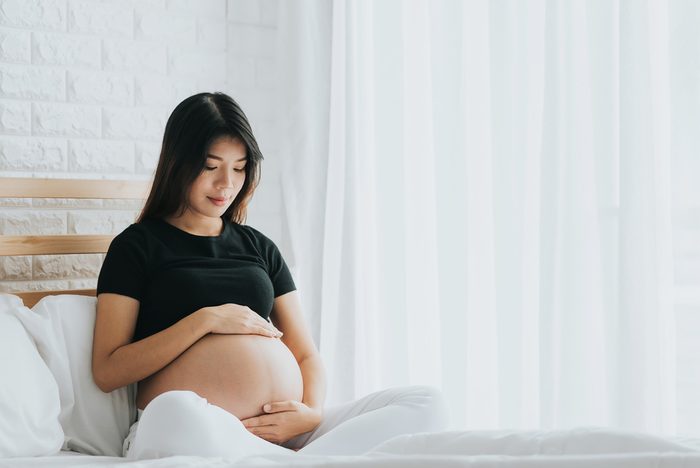
Abdominal pain happens
Mild abdominal pain during pregnancy, especially during the first trimester, is not unusual. According to Wendy C. Goodall McDonald, MD, an OB/GYN in Chicago, IL. It is often a mere side effect from the uterus growing to accommodate the expanding size of the baby. However, she points out that this pain should be mild. If it’s severe or if it’s accompanied by bleeding of any sort, it’s best to call your health care provider immediately to rule out a more serious condition such as miscarriage. Miscarriage can be common early in pregnancy, and it’s not caused by stress, exercise, or having taken hormonal birth control. Don’t believe these 8 myths of miscarriage.
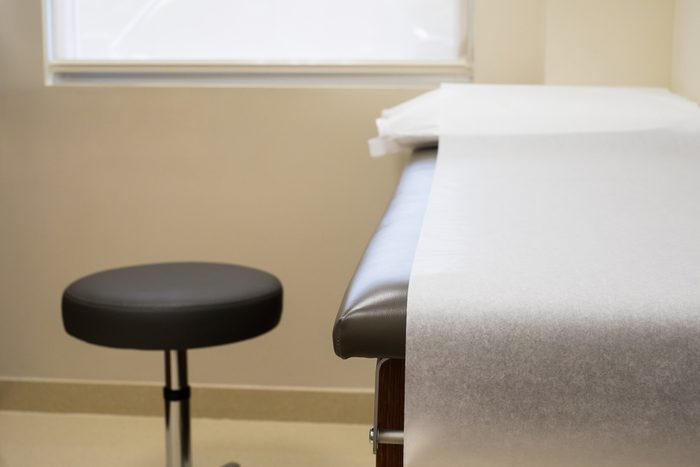
Miscarriage
Miscarriage can occur in as many as one in four pregnancies in the United States. The majority happen in the first trimester as the result of a genetic abnormality—according to Sherry Ross, MD, OB/GYN and Women’s Health Expert at Providence Saint John’s Health in Santa Monica, California—with over 85 percent happening by the eighth week of pregnancy. Symptoms include mild or heavy spotting (vaginal bleeding), severe abdominal cramping, and mild-to-severe back pain.
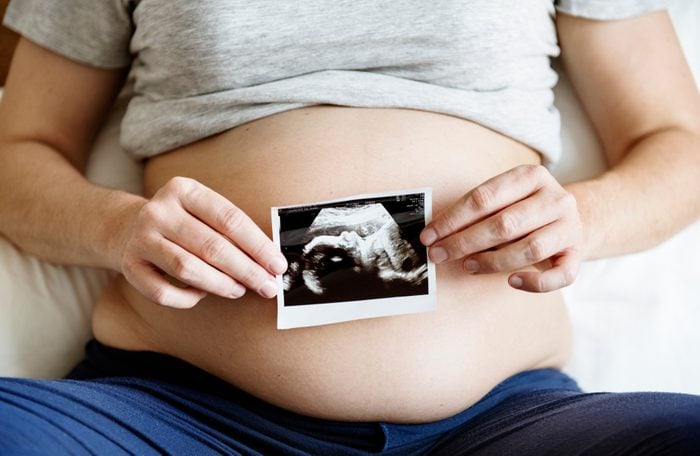
Round ligament pain
As your uterus grows during pregnancy, there are two ligaments that support and stretch to accommodate the uterus’s expanding size. Vague lower abdominal pain during pregnancy, especially with movement, happens as the weeks and months progress, explains Dr. Ross. “The pain is often described as dull or sharp in the lower abdominal area, hips, and groin and worsens when getting out of bed in the morning, coughing, and sneezing,” she says. “It’s completely normal and expected during pregnancy, especially during the second trimester.” It’s these ligaments and your body’s build and muscle tone that determine the shape of your belly—and, no, carrying high or wide does not indicate a boy or girl. You can safely ignore ALL these pregnancy myths.
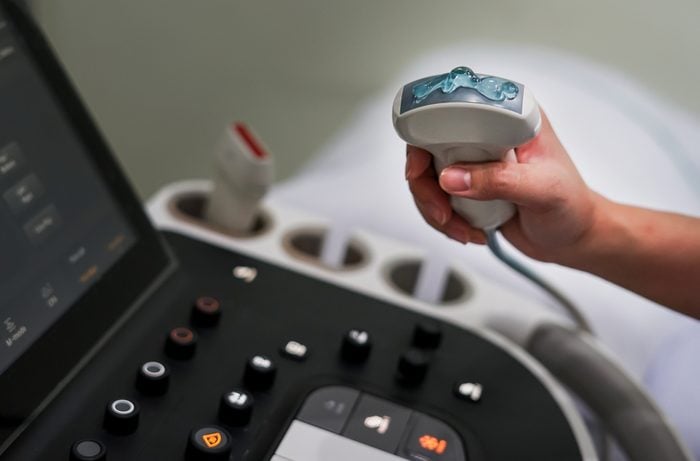
Ectopic pregnancy
A far more serious cause of abdominal pain during pregnancy is an ectopic pregnancy—where the fertilized egg is growing outside of the uterus, often in the fallopian tube. “If you are confirmed to be pregnant based on a pregnancy test, but you haven’t had an ultrasound yet that confirms your pregnancy is growing in the right place, abdominal pain may be the first sign of an ectopic pregnancy,” says Anate Brauer, MD, a reproductive endocrinologist at the Greenwich Fertility and IVF Centers and assistant professor of OB/GYN at NYU School of Medicine. “Having an ultrasound confirming a pregnancy is growing in the uterus is the best way to rule out this diagnosis.”
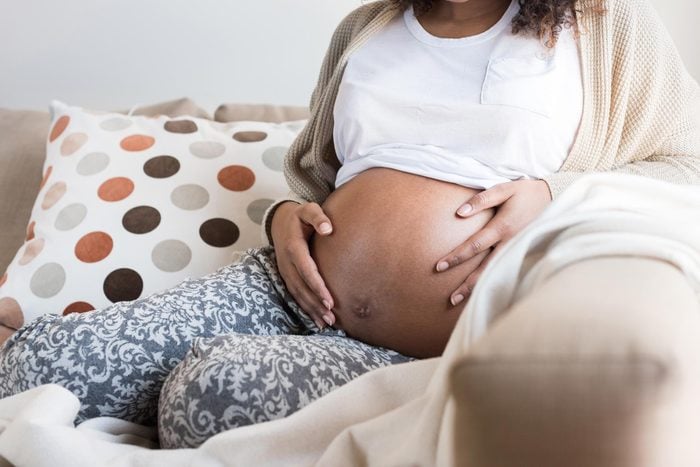
Fetal movement
Fetal movement can sometimes cause sharp or dull pain that lasts seconds or even hours. “This pain can be present in the pelvis, any part of the abdomen, or under the ribs,” says Dr. McDonald. “Evaluation of persistent pain under the ribs is especially important to rule out preterm labor, gallstones (inflammation of the gallbladder), or preeclampsia, which can cause liver swelling and can be painful.” She recommends that you discuss any severe pain with a healthcare provider. These are the preeclampsia signs every pregnant woman will want to know.
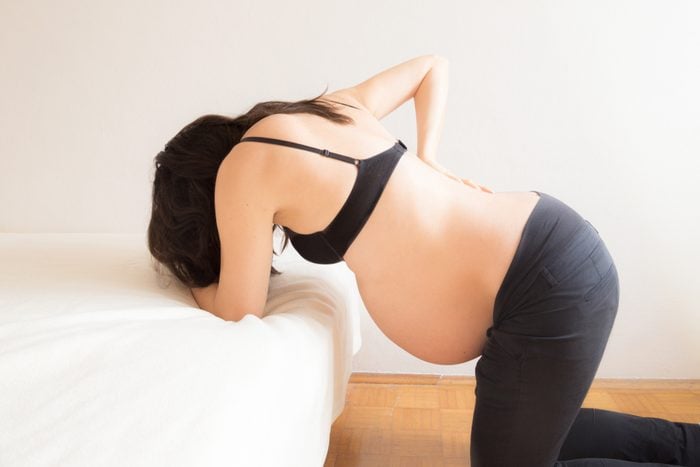
Braxton Hicks contractions
Named after the doctor who first described them, John Braxton Hicks, these perfectly normal and harmless “rehearsal” contractions often occur as early as the second trimester. “Unless you have a history of preterm labor or other high-risk factors where your doctor needs to know about any contractions, Braxton-Hicks contractions are normal and nothing to worry about, unless they are exceptionally painful or occur more than occasionally,” says Rebecca Levy-Gantt, MD, OB/GYN, Premier ObGyn Napa Inc. Discover more birthing truths no one tells you.
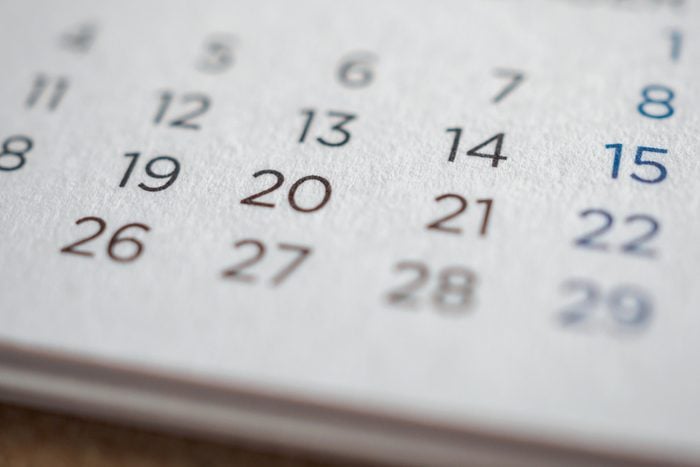
Preterm labor
In approximately 10 percent of pregnancies, real labor contractions begin before 37 weeks—a sign of preterm labor. “Symptoms include frequent and regular uterine contractions, lower-abdominal and back pain, vaginal bleeding, vaginal discharge, and breaking your water,” says Dr. Ross. “Hydration and medications to relax the uterus can be helpful in preventing and treating any of these symptoms occurring prior to 37 weeks.” If any of the symptoms persist, you should contact your healthcare provider.
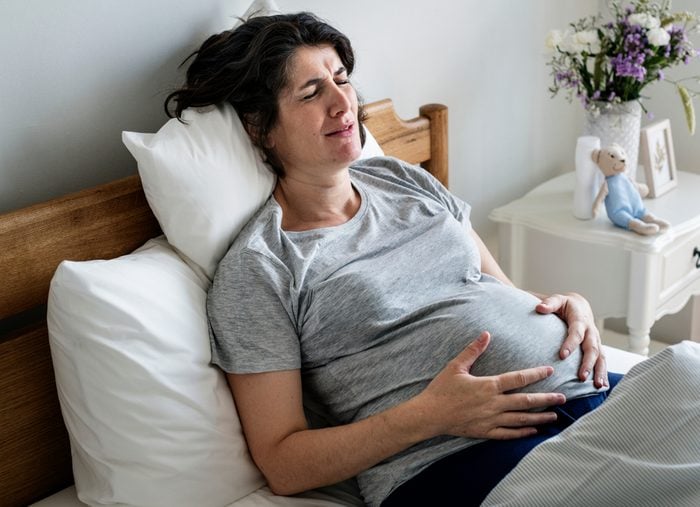
Actual labor
Sometimes abdominal pain during pregnancy can be a sign of labor—you might also feel like you’re having menstrual cramps that get stronger and longer. “If a pregnant person is beyond 37 weeks pregnant, there’s nothing to worry about; this may be a sign of labor,” says Dr. Levy-Gantt. “If you’re under 37 weeks and you have the cramps more than four times in an hour, these contraction-type pains should be evaluated.” Read about these surprising reasons you’re not getting pregnant.

Constipation
Constipation is certainly not an uncommon complaint among pregnant women. “Fluctuating hormones, a diet that’s short on fluids or fiber, lack of exercise, iron pills, or general anxiety can all lead to constipation,” says Dr. Ross. “The pain may even be fairly severe, often described as sharp cramping or stabbing pain.” If you’re suffering from constipation during pregnancy, she recommends you drink plenty of water—eight to ten glasses a day—stay physically active, up your dietary fiber, and consider stool softeners and bulk-forming supplements such as Metamucil and MiraLAX. “It’s always best to discuss any painful bowel changes with your healthcare provider,” she adds. Discover 12 additional things that can cause constipation.

Gas pain
Abdominal pain during pregnancy can also stem from gastrointestinal issues. Gas or diarrhea can often be relieved through dietary changes or some good nutritional advice, explains Dr. Levy-Gantt. “Any abdominal pains that do not go away or are associated with fever, bloody stools, watery diarrhea, or vomiting should be addressed by a healthcare provider, because they can be signs of food poisoning, gastritis, diverticulitis, or another problem with the GI system that could affect the pregnancy,” she says. Don’t overlook these unexpected reasons why you’re so gassy.

Appendicitis
Although pregnancy won’t cause this condition, an infection in the appendix can still happen to pregnant women. If you have severe pain in the right lower abdomen and you’re nauseated or vomiting, get to a doctor immediately, explains Dr. Rebecca Levy-Gantt. Appendicitis occurs in approximately 1 in 600 to 1,000 pregnancies. It generally requires surgery. Whatever you do, don’t ignore these serious symptoms of appendicitis. If it is not treated, your appendix can rupture, which can be life-threatening for you and your baby.
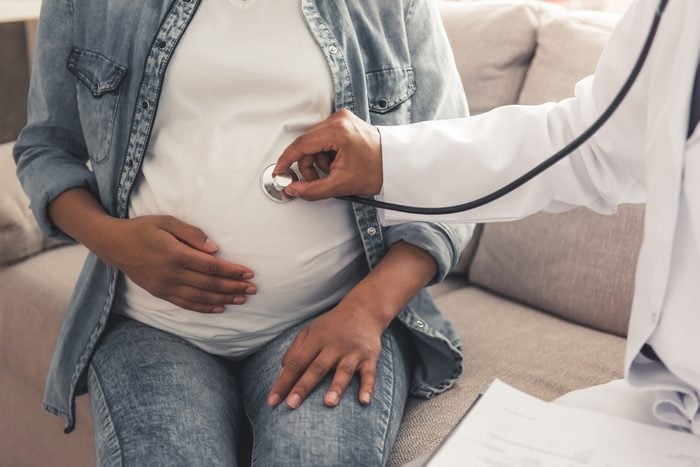
Ovarian cyst
Severe pain on either side of your lower abdomen may indicate that you have a ruptured or twisted ovarian cyst, according to Dr. Levy-Gantt. “It’s less common during pregnancy than in non-pregnant women, but it can happen, so any severe pain that is getting worse on the right or left side, low in the abdomen, should also be evaluated in an emergent setting,” she says.
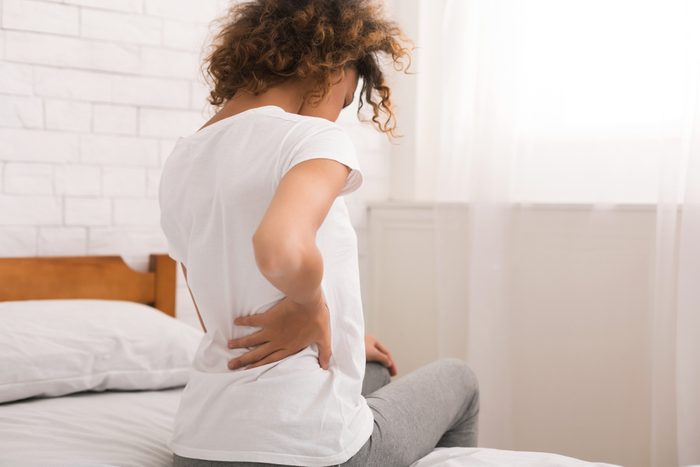
Kidney stones or kidney infection
Sometimes urinary tract infections develop silently during pregnancy, and then spread to your kidneys, causing back or side pain. Kidney stones can also trigger similar pain: “A kidney stone that is traveling down the ureters [tubes that connect the kidney to the bladder] may hurt in the back or on the right or left sides and be accompanied by fever and chills,” says Dr. McDonald. “Kidney infections can be dangerous to mom and baby and should be treated immediately, often with IV antibiotics.” Be in the know about these kidney stone warning signs.
